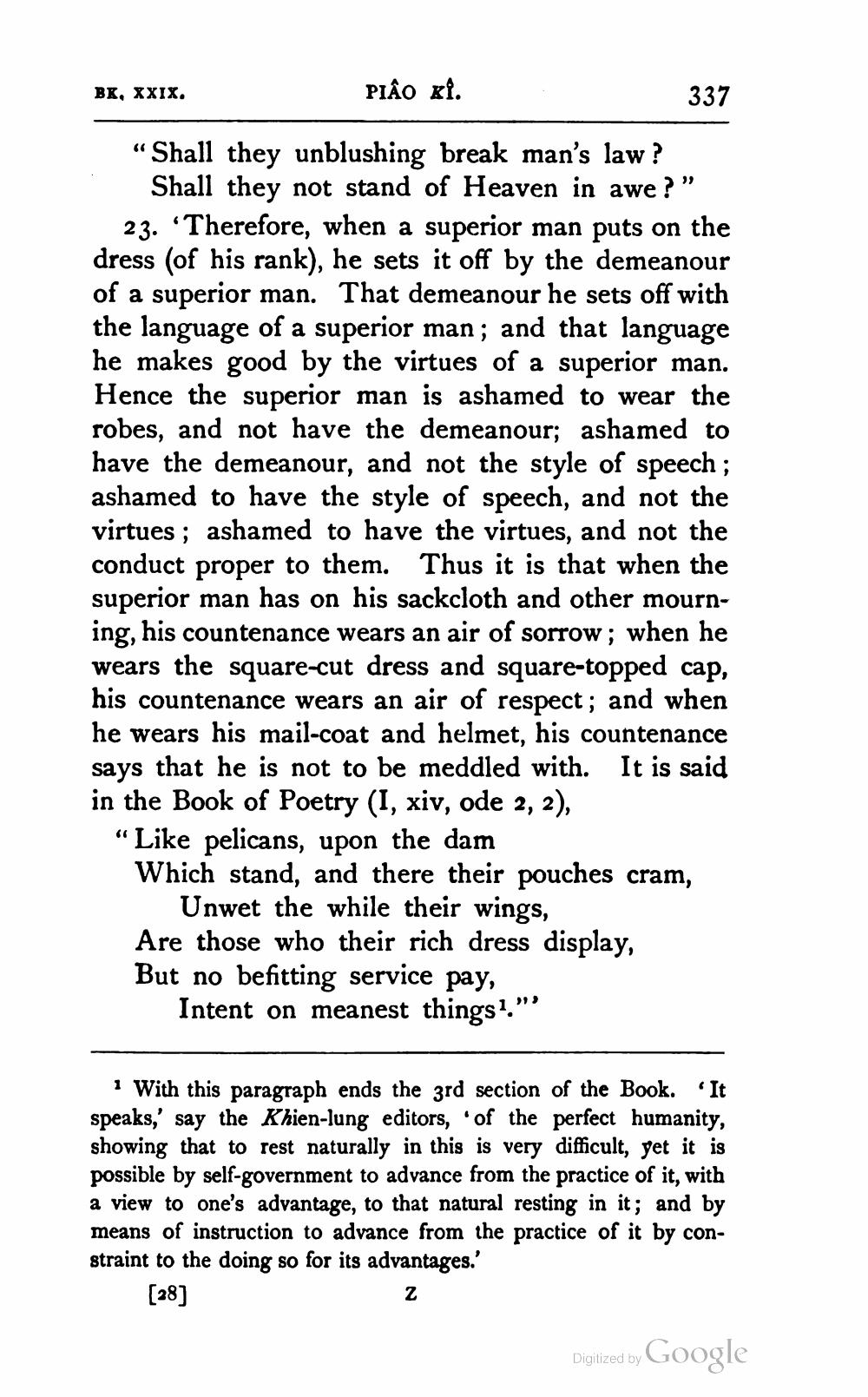________________
BK, XXIX.
PIAO KI.
"Shall they unblushing break man's law? Shall they not stand of Heaven in awe?" 23. 'Therefore, when a superior man puts on the dress (of his rank), he sets it off by the demeanour of a superior man. That demeanour he sets off with the language of a superior man; and that language he makes good by the virtues of a superior man. Hence the superior man is ashamed to wear the robes, and not have the demeanour; ashamed to have the demeanour, and not the style of speech; ashamed to have the style of speech, and not the virtues; ashamed to have the virtues, and not the conduct proper to them. Thus it is that when the superior man has on his sackcloth and other mourning, his countenance wears an air of sorrow; when he wears the square-cut dress and square-topped cap, his countenance wears an air of respect; and when he wears his mail-coat and helmet, his countenance says that he is not to be meddled with. It is said in the Book of Poetry (I, xiv, ode 2, 2),
"Like pelicans, upon the dam
Which stand, and there their pouches cram, Unwet the while their wings,
Are those who their rich dress display,
But no befitting service pay,
337
Intent on meanest things1.""
1 With this paragraph ends the 3rd section of the Book. 'It speaks,' say the Khien-lung editors, of the perfect humanity, showing that to rest naturally in this is very difficult, yet it is possible by self-government to advance from the practice of it, with a view to one's advantage, to that natural resting in it; and by means of instruction to advance from the practice of it by constraint to the doing so for its advantages.'
[28]
Z
Digitized by
Google




